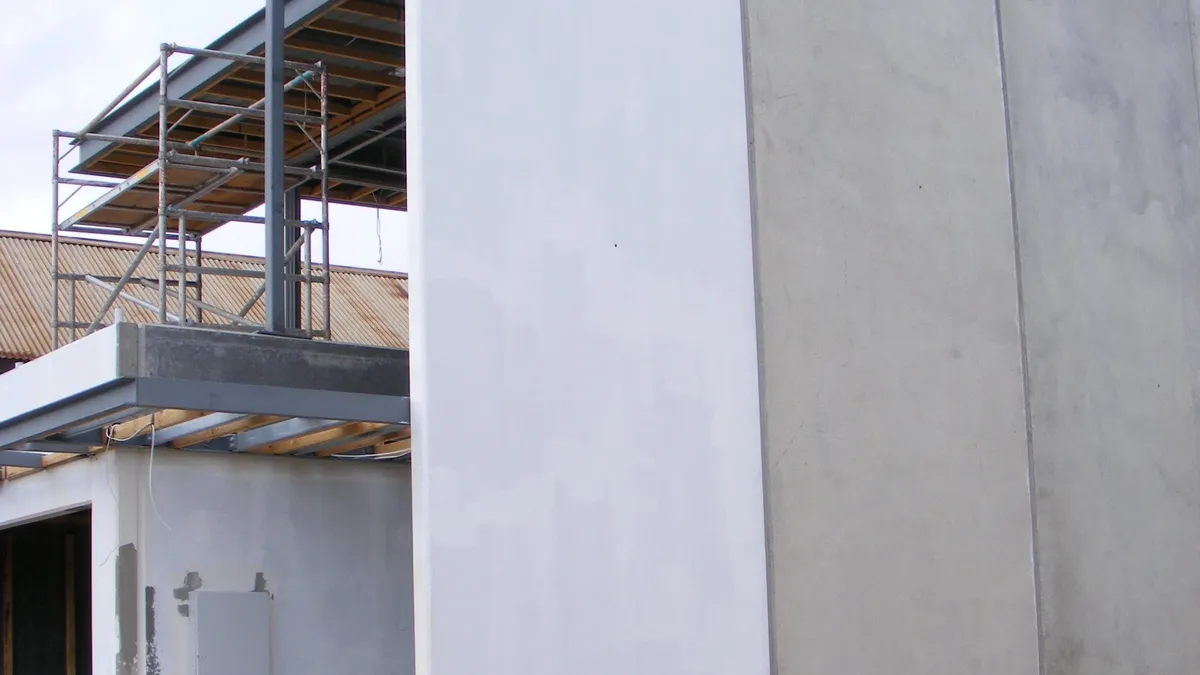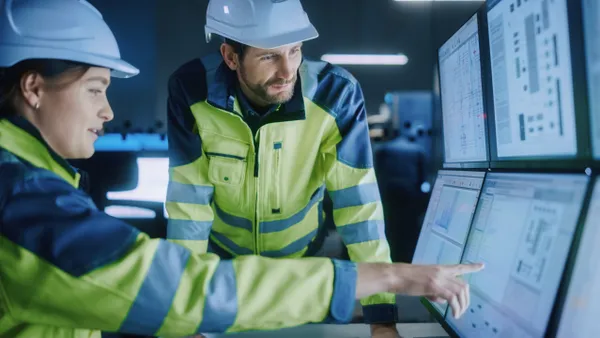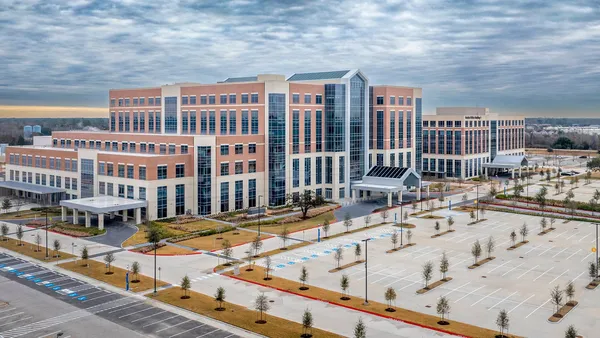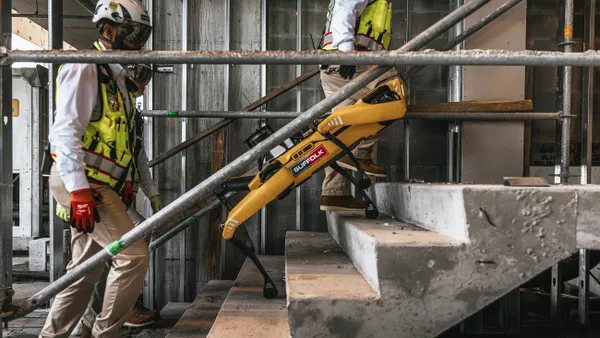Dive Brief:
- Gage Bros. Concrete Products, a Sioux Falls, South Dakota-based manufacturer, completed its first automated concrete pour from a recently opened plant, reported The Sioux Falls Argus Leader.
- The $40 million plant, which has been in the works for more than a year, reportedly replaces labor-intensive processes at Gage Bros.’ former facility.
- Gage Bros. makes precast and prestressed concrete panels, bridge girders, corefloor and more. Advanced machinery at its new plant has reportedly been sourced from different parts of the world, including Spain, Italy, Germany and the United Arab Emirates.
Dive Insight:
Automation is among the most promising solutions to the industry’s chronic skilled labor shortage, but it can be hard to hand over the reins to robots on fast-paced jobsites that require workers to think quick on their feet.
Scott Peters, president and co-founder of Victor, New York-based Construction Robotics, acknowledges that human workers bring adaptability and problem-solving skills to the table. His company rolled out two robots that augment, not replace, these capabilities by taking over repetitive and time-consuming processes.
In a recent webinar, Peters said that before designing SAM, a semi-automated mason, and MULE, which allows a worker to maneuver and place a block or unit while taking on most of the weight, the firm asked the question: "Where is someone doing the same thing over and over again where we can apply a robot to assist that person and either take the physical strain out of their work or increase the speed at which they're able to work?"
In the controlled and enclosed environments where concrete and other building product manufacturers work, these repetitive tasks are easier to identify and automate. A number of precast manufacturers, according to a National Precast Concrete Association (NPCA) article, have automated their facilities in recent years to target a range of benefits spanning labor productivity, quality, safety and more.
Columbus, Georgia-based Foley Products Co. began to automate its pours because it couldn’t find enough labor for the long hours that are required, NPCA reported. Lino Lakes, Minnesota-based Molin Concrete Products Co., meanwhile, aimed to minimize safety risks and health hazards around silica dust, noise, physical strain and more, while innovating to attract millennial workers.














